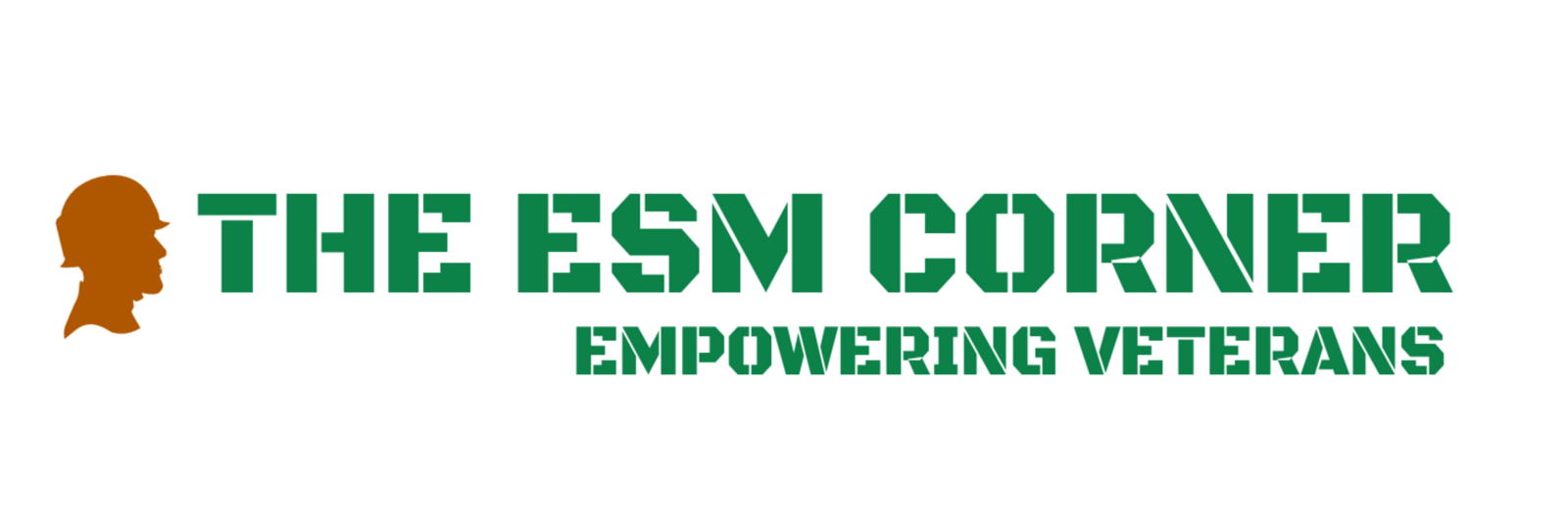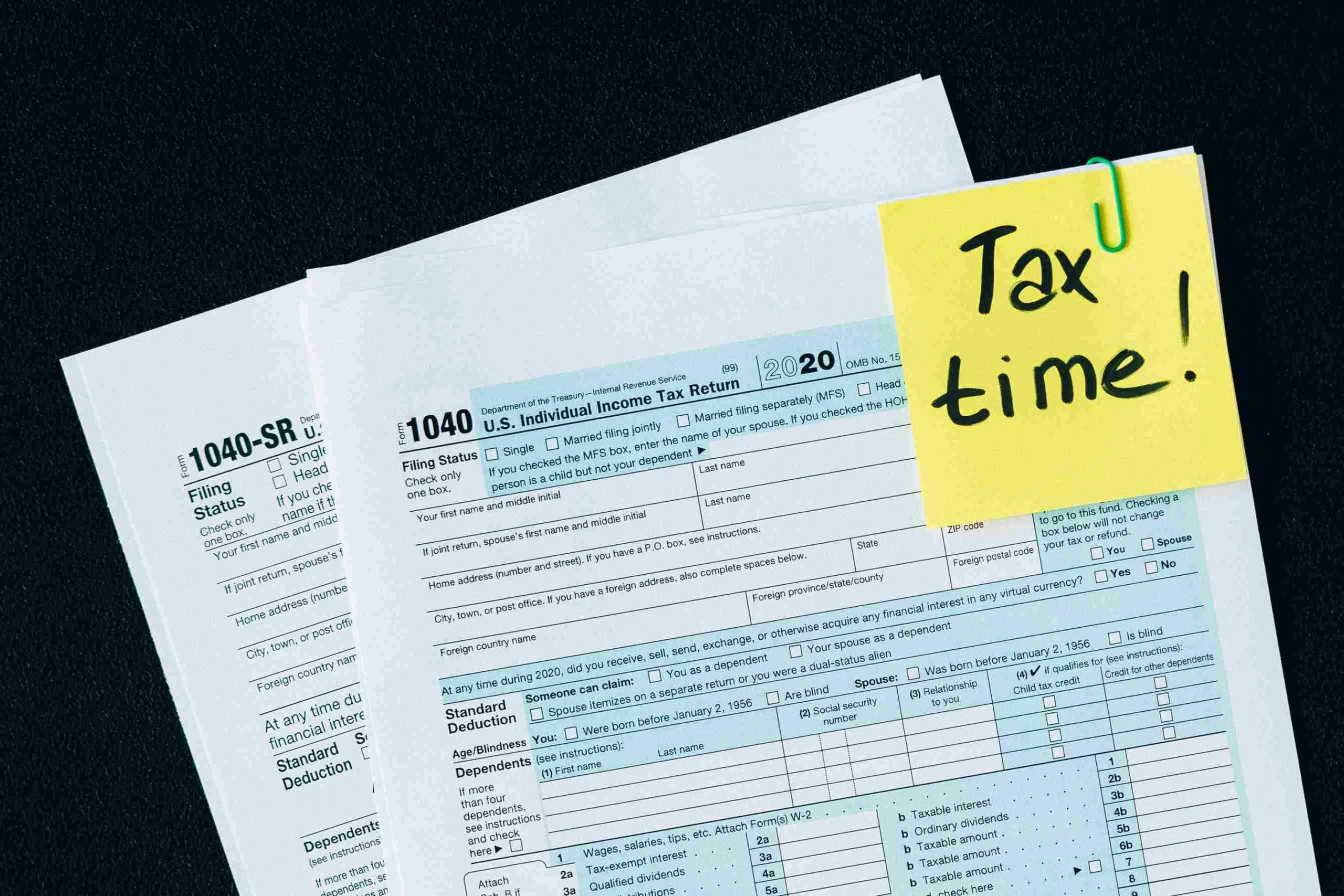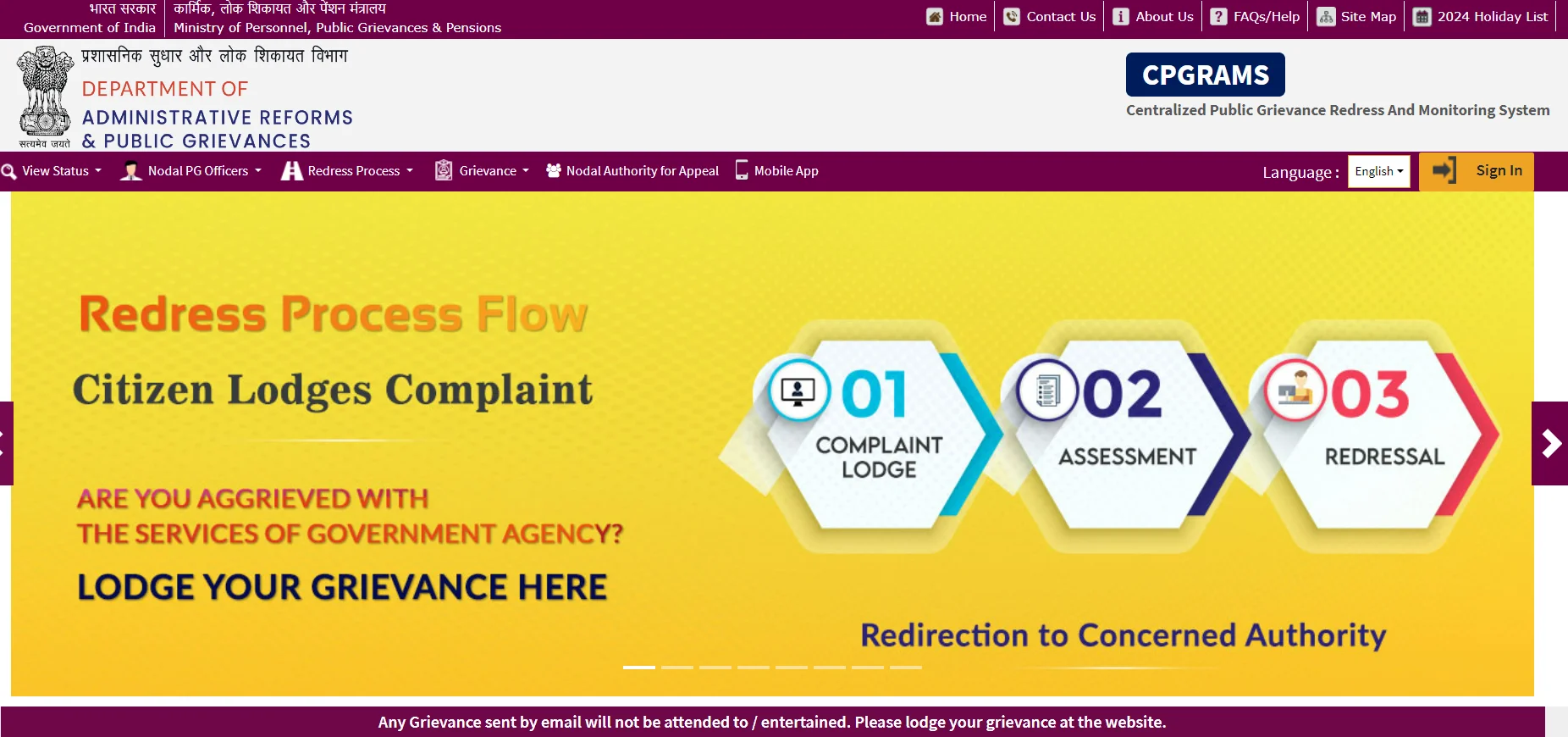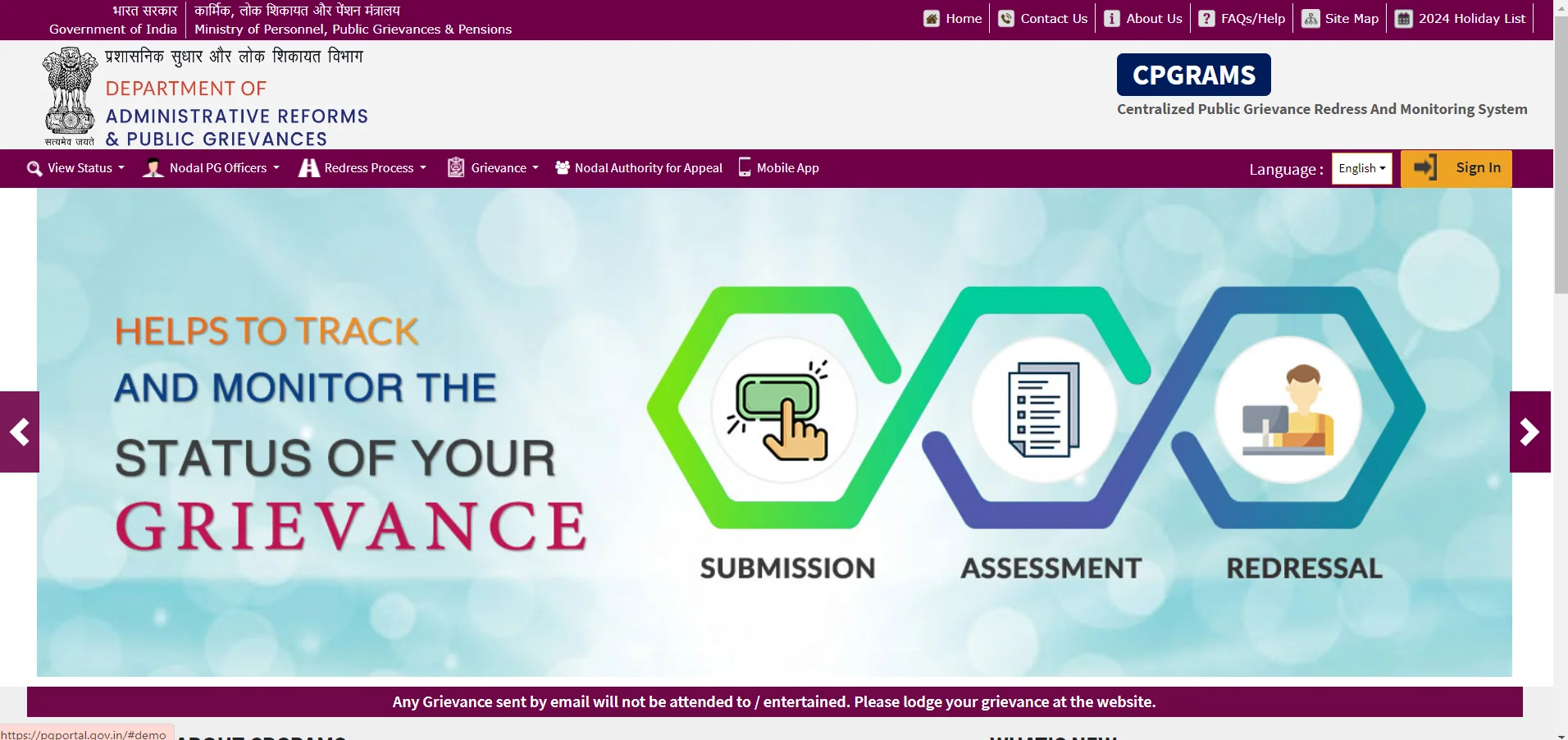
INTRODUCTION
CPGRAMS, short for Centralized Public Grievance Redressal and Monitoring System, is an online platform enabling citizens to file and monitor complaints concerning different government departments and ministries. It was introduced by the Department of Administrative Reforms and Public Grievances (DARPG) under the Ministry of Personnel, Public Grievances and Pensions. The platform’s primary goal is to offer a transparent, accountable, and responsive system for addressing public grievances and collecting feedback from citizens.
CPGRAMS is a user-friendly and convenient platform that aims to improve the quality of public service delivery and citizen satisfaction. the grievances lodged on CPGRAMS are resolved expeditiously as soon as they are received, but not later than 30 days. If there is any further delay, an interim response with the reason for the delay is communicated to the citizen.
When citizens file grievances on the CPGRAMS portal, they receive a unique registration ID to track the status and progress of their grievances. They can also provide feedback and file appeals if they are not satisfied with the resolution. This platform integrates various ministries and departments across different governance levels into a unified system, simplifying the grievance redressal process for citizens.
HOW IS IT USEFUL FOR ARMED FORCES SERVING AND VETERANS
CPGRAMS lets the armed forces serving and veterans complain to the government about any problem they have with the services they get. For example, they can complain about pensions, pay, medical facilities, benefits, etc. They can also check what is happening with their complaints, give their opinions, and ask for a review through CPGRAMS.
CPGRAMS is linked to all the government offices that deal with the matters of the Armed Forces, such as the Department of Defence, the Department of Ex-Servicemen Welfare, the Principal Controller of Defence Accounts Pension, etc. CPGRAMS makes it easy and clear for the armed forces serving and veterans to tell their problems and get solutions from the government. It also helps the government to see and improve how well they serve the people and make them happy. You can learn more about CPGRAMS on the website.
The Defence personnel can complain to the government on the CPGRAMS portal about various problems they face, such as:
- Non-payment of Pension/Family Pension and Retirement Benefits: This category covers the cases where the pensioners or their families do not receive their pension or other benefits that they are entitled to after retirement, such as arrears, gratuity, commutation, etc.
- Service-Related Issues: This category covers the cases where the employees face problems related to their service conditions, such as pay fixation, promotion, seniority, etc.
- Healthcare Issues: This category covers the cases where the employees or pensioners face problems related to their healthcare facilities, such as the Central Government Health Scheme (CGHS), medical reimbursement, etc.
- Issues Related to 7th CPC: This category covers the cases where the employees or pensioners face problems related to the implementation of the recommendations of the 7th Central Pay Commission (CPC), such as pay revision, allowances, etc.
- Payment-related Issues: This category covers the cases where the employees or pensioners face problems related to their payment of salary, pension, or other allowances, such as Dearness Allowance (DA), Dearness Relief (DR), etc.
- Extraordinary Pension Matters: This category covers the cases where the employees or pensioners are eligible for extraordinary pension, such as gallantry awards, disability pension, etc.
- Provident Fund Issues: This category covers the cases where the employees or pensioners face problems related to their provident fund accounts, such as General Provident Fund (GPF), Contributory Provident Fund (CPF), etc.
- Family Pension Delays: This category covers the cases where the family members of the deceased employees or pensioners face delays in getting their family pension, such as spouse, daughter(s), or other dependents.
- Pension Sanction Issues: This category covers the cases where the employees or pensioners face problems related to the sanction of their pension or family pension, such as incorrect calculation, wrong category, etc.
- Retirement Benefits Issues: This category covers the cases where the employees or pensioners face problems related to their other retirement benefits, such as leave encashment, group insurance, etc. It also covers the cases where the pensioners do not receive their pension or family pension due to various reasons, such as non-submission of digital life certificate (DLC), change of bank account, etc.
- Financial Matters: This category covers the cases where the employees or pensioners face problems related to their financial matters, such as non-payment of fixed medical allowance (FMA), excess deduction of tax deducted at source (TDS), recovery by bank or post office, etc.
- Pension Documentation Issues: This category covers the cases where the employees or pensioners face problems related to their pension documents, such as inclusion or correction of the name, date of birth, address, etc., of the pensioner or family pensioner(s) in the pension payment order (PPO).
- Specialized Pension Categories: This category covers the cases where the employees or pensioners belong to specialized pension categories, such as disability pension, ex-gratia pension, etc.
- Issues of Corruption: This category covers the cases where the employees or pensioners face issues of corruption, malpractice, or misconduct by the public authorities or officials.
- Unspecified Grievances: This category covers the cases where the grievances do not fall under any of the above categories or are not specified by the petitioner.

Click here to know How to register on the CPGRAMS Portal
MAJOR DEFENCE DEPARTMENTS COVERED BY CPGRAMS
The major Defence departments covered by the CPGRAMS portal are:
- Department of Defence (MODEF), which is responsible for formulating policies and plans for national Defence.
- Department of Defence Finance (FADSS), which focuses on financial management and budgeting for Defence expenditures.
- Department of Defence Production (DDPRO), which deals with the production of Defence equipment, weapons, and technology.
- Department of Defence Research and Development (DRDO), which is responsible for Defence research, development, and scientific advancements.
- Department of Ex-Servicemen Welfare (DESW), which focuses on the welfare of ex-servicemen and their dependents, providing various support.
- Principal Controller of Defence Accounts Pension (PR. CDA PENSION ALLAHABAD – CDA01), which manages and controls pension-related matters for Defence personnel.
Click here to know How to File a Complaint on CPGRAMS
RESOLUTION OF A COMPLAINT
Local Level Assessment: The local office of the concerned ministry or department receives the grievance from the CPGRAMS portal and reviews it for its validity and relevance. It then issues an acknowledgement letter to the citizen within three days of receipt, informing them about the registration number, the name and contact details of the grievance officer, and the expected date of resolution.
No Action Needed: If the grievance is found to be invalid, irrelevant, or out of the purview of the ministry or department, the local office rejects the grievance and closes it on the CPGRAMS portal. The acknowledgement letter also serves as the closure letter, notifying the citizen about the reason for non-acceptance and the option to file an appeal if dissatisfied.
Taken Up with Subordinate Organization: If the grievance is found to be valid and relevant, the local office forwards it to the subordinate organization or office that is responsible for the subject matter of the grievance. The subordinate organization or office then takes necessary action to redress the grievance within the prescribed time limit of 30 days. The local office monitors the progress of the grievance and updates the status on the CPGRAMS portal. Once the grievance is resolved, the local office issues a closure letter to the citizens, informing them about the action taken and the option to provide feedback or file an appeal if dissatisfied.
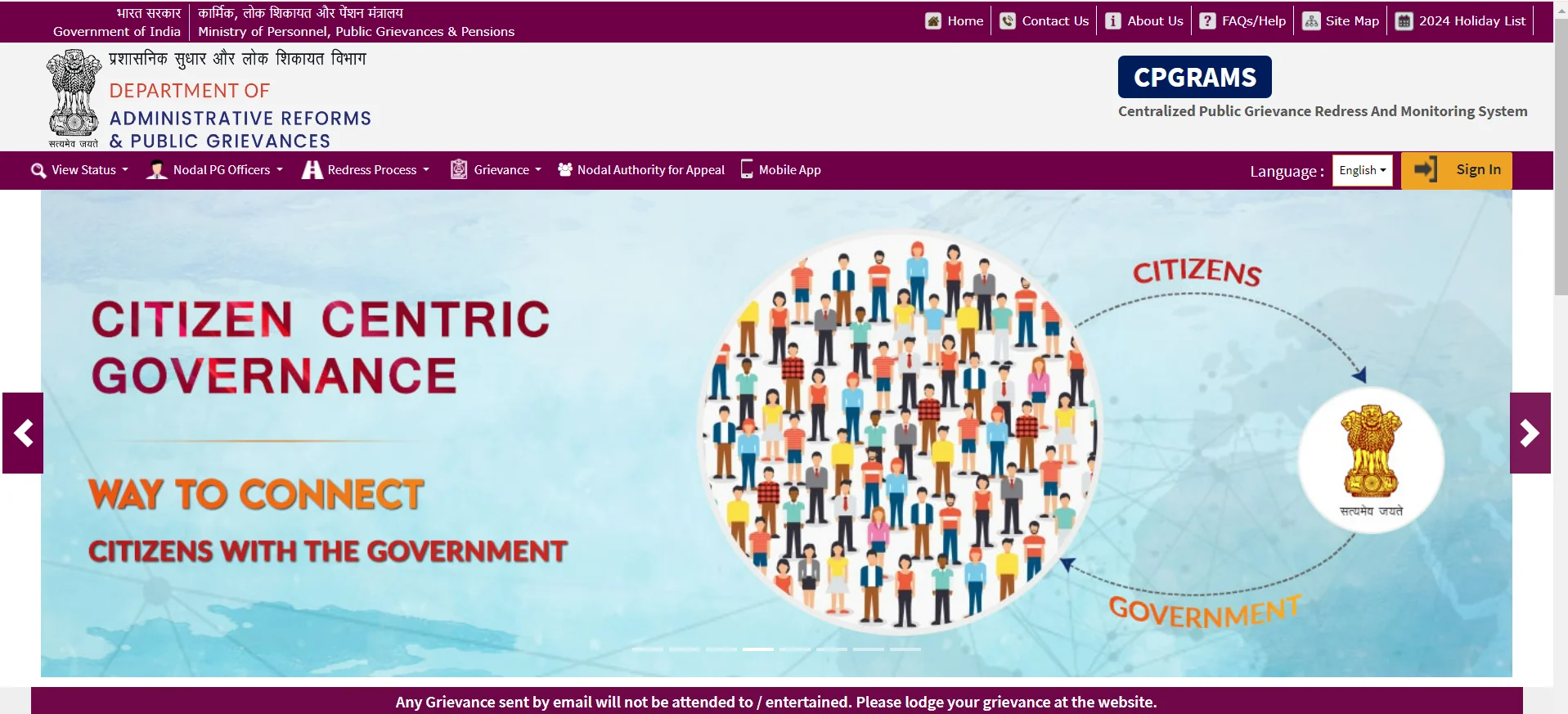
ISSUES NOT ADDRESSED BY CPGRAMS
The following issues are not addressed by CPGRAMS
– Matters under the Right to Information Act, 2005.
– Suggestions from citizens.
– Cases under consideration in any Indian court.
– Family or personal disputes.
– Issues impacting India’s territorial integrity or diplomatic relations.
– Corruption complaints at any governance level (should be directed to relevant authorities).
CONCLUSION
CPGRAMS is a platform that lets citizens, especially the armed forces serving and veterans, complain to the government and get solutions for their problems. It connects different government offices and resolves complaints quickly and effectively. It also makes the public authorities more accountable and responsive and improves the public service quality. By using CPGRAMS, citizens can help the nation grow and prosper. CPGRAMS simplifies the grievance redressal process by integrating various ministries and departments into one system. It also gives each complaint a unique number that citizens can use to track their complaints and see how they are resolved.
Click here to read How To File RTI In Army

